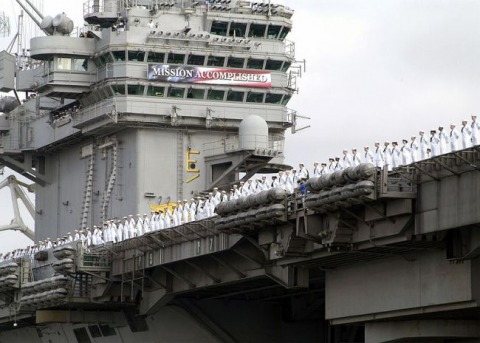
Why was former President George W. Bush so resolute in assembling a coalition and a massive accumulation of force to achieve regime change during the Second Iraq War – but so irresolute (though not so irresolute as his successor) in stabilizing the country afterward?
To be sure, he radically underestimated the difficulty of the latter task. He expected the coalition troops to be greeted as liberators, which for a short time they were. But this is not a complete explanation.
He realized that the Americans and their allies might not have the moral nerve to stay the course in a protracted conflict. But through the new military doctrine of “shock and awe,” heseems to have believed we would get in and out so quickly, with such overwhelming dominance, that there would be no course for us to stay. As to the Iraqis, he expected our manner of waging war to impress them so thoroughly that even after the shock had dissipated, the awe would persist, transforming their civil society.
In short, he was attempting to apply a technological solution to a pair of moral problems – on our side, weakness of will, and on the Iraqi side, unreadiness for self-government. And that is why he failed.
Tomorrow: The Same as to Knowledge, Part 1